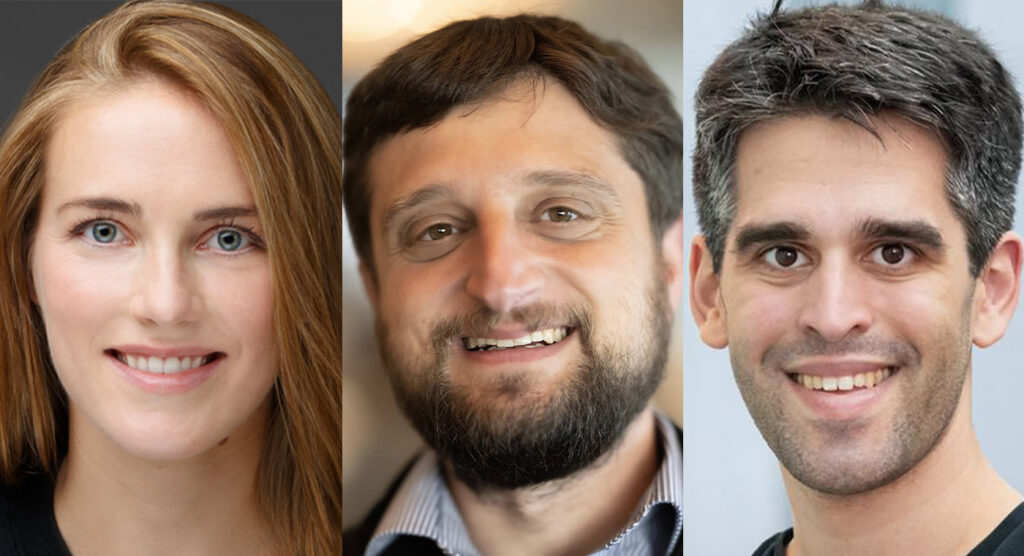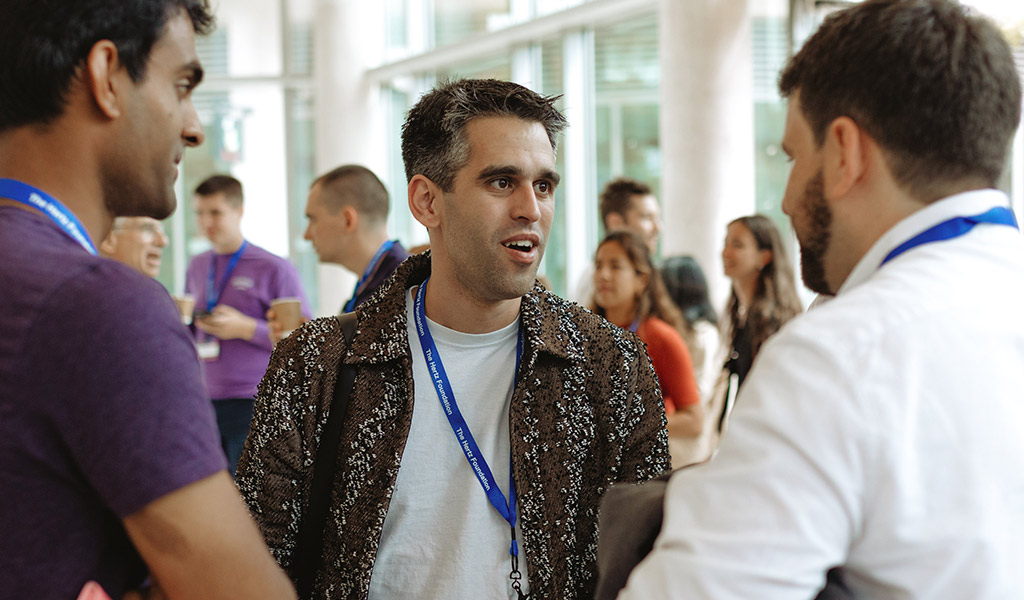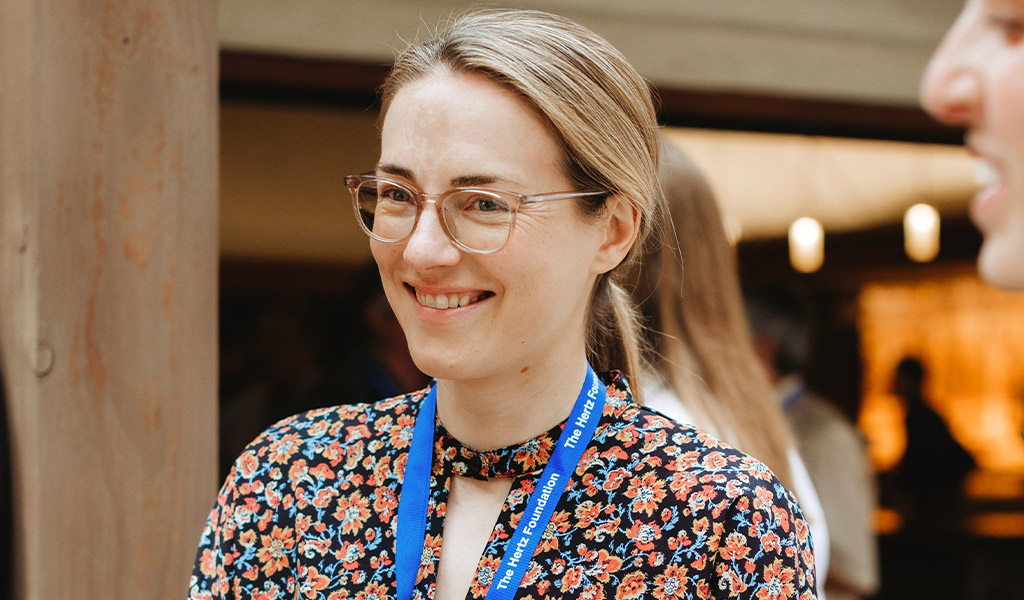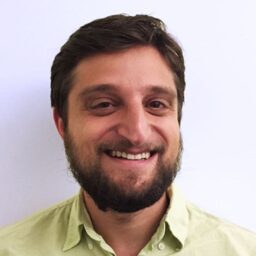
Science Philanthropy: Why Progress Depends on Funding

On any given day, you might find 2011 Hertz Fellow Megan Blewett in her office in Berkeley, California, 2010 Hertz Fellow Adam Marblestone between meetings in downtown Arlington, Massachusetts, 2013 Hertz Fellow Sam Rodriques on a flight between SFO and Heathrow—and all three connected by a shared vision. These Hertz Fellows are working together to advance not just scientific research, but also how it’s funded.
At the intersection of their interests is the aptly named Convergent Research, where Marblestone is co-founder and CEO, Blewett is a board member, and Rodriques and Marblestone developed the idea. Convergent Research aims to accelerate scientific progress by funding projects that fall through the gaps of traditional funding structures.
“I always felt like things were not moving fast enough to solve the problems that I wanted to solve in my lifetime, like understanding the origins of life,” says Rodriques, who has been developing technologies that can accelerate research. “Sure, that may sound ambitious. But these problems should be tractable.”
He was eager to identify and solve the bottlenecks preventing progress. But where was the funding for that kind of work? “There are scientific problems that are too big for an academic laboratory, more coordinated than a loose consortium, and not directly profitable enough to be a venture-backed startup or industrial R&D project,” says Rodriques.
Validated by the Hertz Community
As you’d expect from any Hertz Fellow, Rodriques and Marblestone were not content to sit idly by. They envisioned a unique opportunity for private funders willing to take big bets—the type needed for big progress. And they knew just where to turn: the unparalleled Hertz Community, composed of scientists of varying disciplines, locations, ages, and career stages.
“Gathering evidence across different fields was important. We were able to go to Hertz Fellows who we know are really ambitious scientists and ask them what they were experiencing,” says Marblestone. “We weren’t the only ones frustrated. There was actually a structural gap in the system. If researchers don’t think a project will find funding, they can’t spend the time to develop the proposal.”
Ultimately, researchers must recalibrate their ambitions to meet the funding available. This has worrisome implications for scientific progress.
Accelerating scientific progress
These three Hertz Fellows set out to empower the scientific community to ask more audacious questions, pursue more complex ideas, and move much more quickly.
Building toward this vision, Convergent Research is an incubator for Focused Research Organizations (FROs), which are large-scale, tightly coordinated, nonprofit projects led by scientific founders and funded by philanthropic donors.
Incubator, accelerator, agile, scale—the FRO model speaks the language of the startup world for good reason. “FROs are simply nonprofit startups for science,” says Rodriques. “They provide a mechanism by which we can assemble a team of fullytrained scientists to work together on a research project.”
With milestones to make and missions to satisfy—typically in just five years—FROs are designed to move fast.
“The finite duration is an important component,” says Marblestone. “Unlike endowing an institute, it’s less of a commitment for a philanthropist and keeps the organization focused and accountable.”
Incentivizing new types of projects
Given the founders’ biology expertise, Convergent Research initially focused on biology-based FROs, but their portfolio now includes climate measurement, mathematical theorem proving, and more. All seek to produce high-impact, technically ambitious public goods that promise to dramatically accelerate progress once released into the world.
“We’re trying to encourage whole new categories of projects,”says Marblestone.
This shift may be part revolution, part evolution. “One of the interesting observations I had talking to academics about the FRO model,” says Blewett, “is that many are so used to a certain level of grant funding and team size, usually fairly small, that it’s difficult for most academics to even imagine what they would do with FRO-level funding and resources.”
The team at Convergent Research plays an active role in the process, first seeking to understand what bottlenecks slow progress in key scientific fields, then soliciting and helping to refine proposals that address those bottlenecks. They also offer operational support, helping the teams translate their projects into FROs. But before any of these projects can get off the ground, funders ready to experiment with new organizational models are needed.
The critical role of philanthropy
Convergent Research is currently the only FRO incubator, but FROs aren’t the only model for funding research outside of traditional structures. They are part of a larger movement exploring new ways to incentivize scientific research. While many projects don’t require an FRO approach and are well served by academic and government labs, venture capital and corporate R&D, and public-private partnerships, at the end of the day the more avenues for advancing science and technology, the better.
“We should be experimenting in the process of funding science, not just in the science,” says Marblestone. “And philanthropists are in the best position to experiment. Unlike the NIH or the NSF, for example, philanthropists aren’t limited by things like congressional oversight and rigid processes.”
There’s a growing need for philanthropy in academia, too. “The economics of graduate school are shifting,” says Blewett. “We’re seeing graduate student salaries increasing without a corresponding increase in federal funding.” The potential ripple effect is troubling—it could mean graduate programs accepting fewer students, and therefore fewer people in our society with the scientific literacy to navigate some of our thorniest problems.
The Hertz Foundation is advancing scientific capabilities and progress— from investing at the academic level in the nation’s most promising minds in science and technology to cultivating an extraordinarily collaborative community that endures beyond graduate school.
With three new Hertz Fellowships recently supported by the generosity of Eric and Wendy Schmidt, the Hertz Foundation is expanding opportunities for the most promising technical talent in the United States focused on areas that are vital for U.S. and global strategic interests.
“If you give people the opportunity to do a different kind of science,” says Rodriques, pointing to the growing diversity of funding sources and models, “they will come up with different ideas.” And just maybe, create a different, better future.
Like all Hertz Fellows, Marblestone, Rodriques and Blewett are curious, optimistic, innovative—and impatient. There are urgent problems to solve. And with this new paradigm in science philanthropy, there are more opportunities for solving them.


